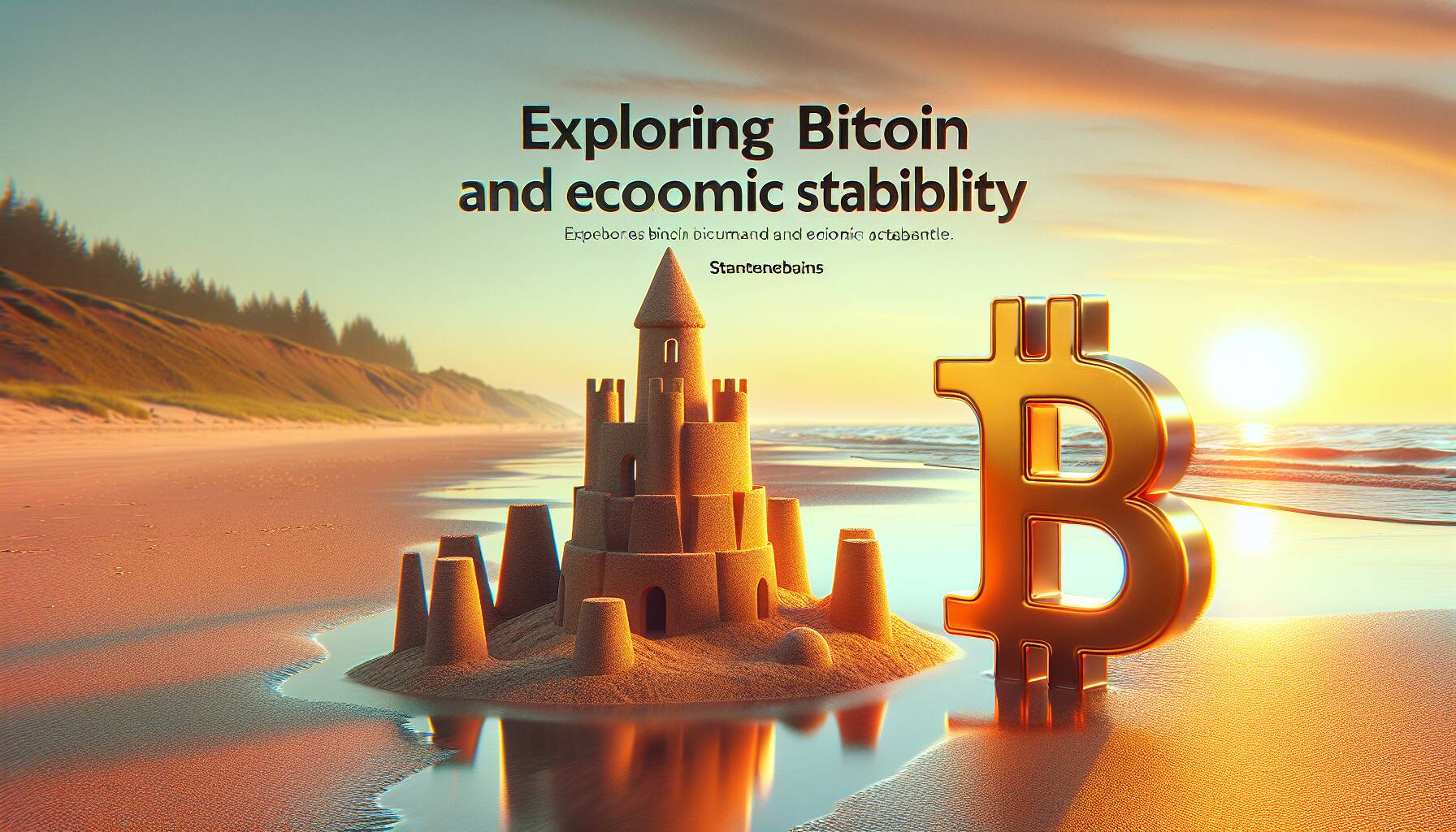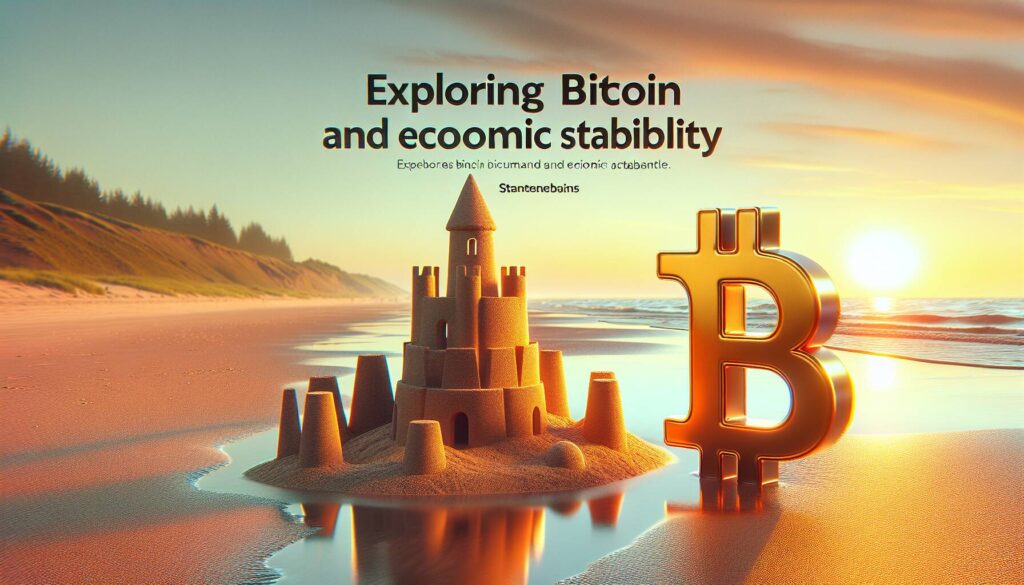In a recent letter to shareholders, BlackRock CEO Larry Fink expressed his nuanced perspective on the rising prominence of Bitcoin and its implications for the U.S. economy. While he remains a supporter of digital assets, Fink highlighted the potential risks associated with Bitcoin’s growing influence, especially as it relates to the stability of the U.S. dollar, which has long served as the world’s reserve currency. He stated, “The U.S. has benefited from the dollar serving as the world’s reserve currency for decades. But that’s not guaranteed to last forever.”
Fink cautioned that if the U.S. fails to get its fiscal house in order, there is a possibility that investors may start viewing Bitcoin as a safer option than traditional fiat currency. He acknowledged the benefits of decentralized finance, noting that it could make markets faster, cheaper, and more transparent. However, he warned that such advancements, while positive, could inadvertently threaten America’s economic advantages.
“Two things can be true at the same time: Decentralized finance is an extraordinary innovation. Yet that same innovation could undermine America’s economic advantage if investors begin seeing Bitcoin as a safer bet than the dollar.”
Fink’s comments come at a time when market uncertainty is palpable, with many investors concerned about the economic landscape amid ongoing policy changes under the Trump administration. To mitigate these risks, he encouraged investors to diversify their portfolios, adding private market assets alongside traditional stocks and bonds.
Fink’s optimism for the future of digital assets was underscored by his belief that if the industry can create a more robust infrastructure for digital identities, tokenized funds could achieve a level of recognition similar to that of exchange-traded funds (ETFs). He remarked, “Every stock, every bond, every fund—every asset—can be tokenized.” This vision aligns with BlackRock’s recent initiatives, including their launch of the iShares Bitcoin Trust (IBIT), which has quickly become a leading product in the cryptocurrency ETF space, managing nearly billion in assets.
Additionally, BlackRock’s tokenized money market fund, BUIDL, is on track to reach billion in assets by April, signaling a significant step forward in the tokenization trend that Fink champions. As the conversation surrounding digital assets continues to evolve, Fink’s insights may spark important discussions about the future of finance and the role of cryptocurrencies within it.

BlackRock CEO Larry Fink on Digital Assets and Economic Risks
Larry Fink, the CEO of BlackRock, shares crucial insights on the potential impact of Bitcoin and digital assets on the U.S. economy. Here are the key points from his recent commentary:
- Digital Assets and Risks:
- Fink acknowledges the benefits of digital assets but warns of potential risks to the U.S. Dollar’s status as the world’s reserve currency.
- If the U.S. doesn’t control its national debt and deficits, it risks losing its dominant economic position. This could lead to increased interest in Bitcoin as a safer asset.
- Decentralized Finance as Innovation:
- Fink describes decentralized finance (DeFi) as an extraordinary innovation that enhances market efficiency.
- However, he suggests that this innovation could also challenge America’s economic advantages if Bitcoin is viewed as more stable than the dollar.
- Investment Diversification:
- Amid growing economic uncertainty, Fink advises investors to diversify their portfolios by including private market assets along with traditional stocks and bonds.
- Tokenization of Assets:
- Fink believes in the potential of tokenized funds to gain prominence in investment markets, similar to exchange-traded funds (ETFs).
- He emphasizes the need for improved digital identity infrastructure to encourage institutional investors to embrace DeFi fully.
- BlackRock’s Innovation in Funds:
- In January 2024, BlackRock launched its successful spot bitcoin ETF, the iShares Bitcoin Trust (IBIT), now managing nearly billion in assets.
- The company is also developing a tokenized money market fund, BUIDL, which is poised to become the largest tokenized fund on the market.
This comprehensive outlook by Fink not only underscores the transformative potential of digital assets but also highlights the imperative for individuals and investors to stay informed about the evolving financial landscape.
BlackRock’s Bold Stance on Digital Assets: Impact and Implications
In a landscape dominated by fluctuating digital assets and growing investor interest, Larry Fink, CEO of BlackRock, has stepped up to articulate a nuanced viewpoint regarding Bitcoin and decentralized finance (DeFi). His comments not only acknowledge the potential of digital currencies but also highlight the risks they pose to the U.S. dollar’s longstanding dominance as the world’s reserve currency. This duality in perspective sets BlackRock apart in the asset management sector, sparking crucial discussions among investors, policymakers, and financial institutions.
Competitive Advantages: One of BlackRock’s most significant advantages is its established reputation as a leading asset manager, coupled with its ability to pivot and innovate in a rapidly changing market. By introducing products like the iShares Bitcoin Trust (IBIT) and the tokenized money market fund BUIDL, BlackRock positions itself as a forward-thinking entity ready to leverage the growing appeal of digital assets. These offerings can attract a diverse investor base, bridging the gap between traditional finance and the burgeoning world of cryptocurrencies. Furthermore, Fink’s recognition of the necessity for better digital infrastructure underscores BlackRock’s commitment to setting industry standards, potentially leading to more robust investor confidence.
Competitive Disadvantages: However, Fink’s cautious approach might deter some investors who seek a more unabashed embrace of cryptocurrencies. By emphasizing risks associated with digital assets, BlackRock risks alienating those who view such assets as the primary investment vehicle of the future. Additionally, areas such as digital verification remain unresolved hurdles that could impede broader institutional adoption of tokenization. While BlackRock is working on these fronts, the fast-paced nature of the crypto market could leave slower-moving traditional players vulnerable to more agile competitors.
Who Can Benefit or Face Challenges: Fink’s insights are particularly beneficial for institutional investors who are trying to navigate the complexities of integrating digital assets into their portfolios while mitigating risks. For retail investors, BlackRock’s offerings could provide a relatively safe entry point into the world of cryptocurrencies, bringing legitimacy to their investments. Conversely, traditional banks and financial institutions that are slow to adapt may face challenges as digital assets gain traction. Additionally, regulators and policymakers could find themselves under pressure to respond to Fink’s call for improved frameworks, prompting a reevaluation of existing financial regulations that govern the digital economy.
As Fink boldly navigates the crests and troughs of digital finance, the interplay between innovation and caution at BlackRock could pave the way for a transformative era in asset management, reshaping the investment landscape for years to come.

















